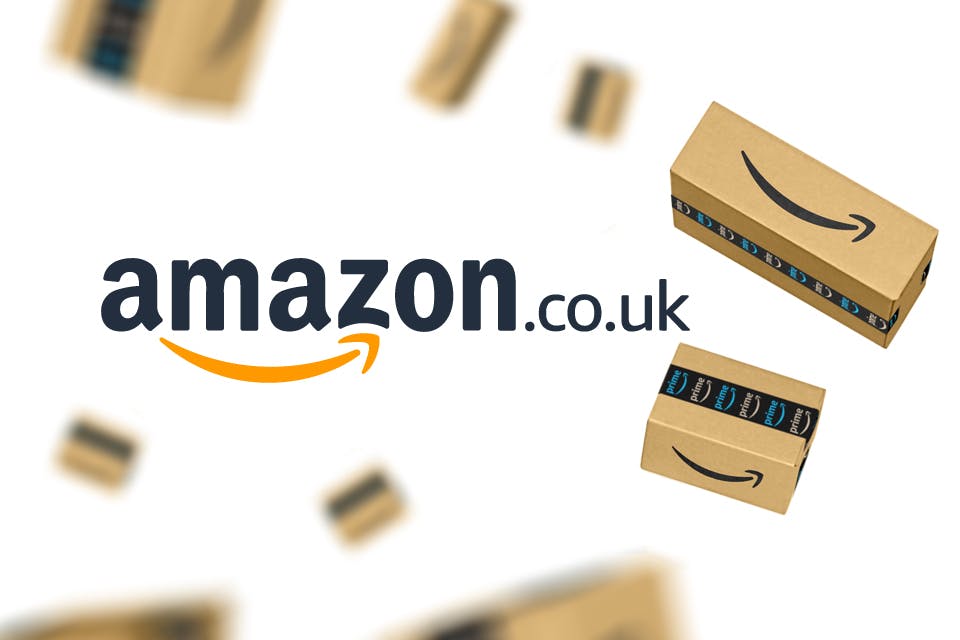01 August, 2017
How to succeed in your first of year in business
Have you finally got your great idea? Have you decided you’re going to go for it? Fantastic! At the Hoxton Mix, entrepreneurship is in our DNA so we are always pleased to hear of new people going out to make an impact on the world through their business ideas. And the rewards of being your own boss and having an impact in your society can be found on many levels. Obviously we’d all like to reap the financial benefits but there’s also the emotional ones of knowing you’re making your mark on the world, or making it possible for others to feed their family and enjoy a good life by being your employee. And then of course there’s the pleasure we can get from knowing that your customer has benefited from what you provided them or that you could leave a legacy for generations to come.
But how do we succeed at this? Now there’s a slippery fish! You probably have heard the negative statistics around how many new businesses fail and according to the ONS the percentage of businesses in the UK that survive 5 years is only 41%. But, for the first year the survival rate is much higher, 92% in 2014 and we’d love you to be part of that group of new business men and women who get started and succeed in their first year but also carry on for as long as you want to be in business! With that in mind our guide to your first year in business is really all about setting yourself up with a solid foundations that carry on into all the years that follow year one!
Only spend on the necessities
We’re going to have to be really direct here because we want you to succeed! You MUST keep your expenses to the minimum and spend on what is essential and not what’s frivolous. We know it’s tempting to go have a party to get started, and maybe use the new business bank overdraft to do so. Or maybe you want a flashier new suit than is needed or want that extra employee on your books when a freelancer would be fine. But you must remember that cashflow is king and if you have more money going out than you do coming in, at some point it’s all going to come to a grinding halt!
If anything, we would say this has to be your guiding light. We know it’s really easy to get caught up in the excitement of running your business, making your product, serving your customer, changing the world! But if you run out of money you’re through! You must know your cash situation all the time and it’s wise to do this through keeping a simple profit and loss analysis. This won’t just help you know where you are now but it will also help you understand what direction you are headed in.
By the way, if you didn’t already realise it, the reason the Hoxton Mix provides freelancers and starting business a virtual office address is so you can keep your overheads as low as possible. You almost certainly don’t need to spend money on glamorous offices, maybe not even grotty ones to start! But it will help you a lot to have central London address for your business. If you’re interested you can find out more about us here.
It’s all about your customer
While it’s easy to focus on the nuts and bolts of running your business you mustn’t forget that you’re in business to serve your customer! You might like to think about this in terms of customer satisfaction. Very often receiving the finished product is only one part of the process. If you’re running a coffee shop, giving them a great coffee is only one part of the equation. What’s it like when they go to sit down? Is the environment in keeping with how you present yourself? How do your staff treat customers? Even the ones who seem to stay way after finishing their coffee?!
Really take the time to think about the customer’s experience with you across their whole journey with you? What’s their experience when they first make contact, before becoming a customer? How do you deal with them in the space between first contact and purchase? Do you hold their attention through providing all sorts of useful or entertaining content, or sneer at them because they don’t look like folks who could afford you?!
And once you’ve been fortunate enough to have a purchase from them, what is your aftersales like? Are you taking care of them, are you attentive when they contact you with questions or need help?
Finally, do you listen to them? At the end of the day, the only reason you’ll stay in business is if enough people want to pay for the thing you have. So do you know what they want? Is there something about your product that stops them buying more or recommending you to friends?
Grow Your Network
For some, networking is really easy, particularly for some of the more extrovert amongst us. For others we know it’s important but but struggle to make connections. We think it’s a lot easier if you tackle this from the perspective of thinking about how you can add value to and help people when you meet them first before asking if they can help you.
If you’re in B2B sales then having a network of peers will enable you to reach the people with the purchasing power. If you’re in B2C, growing your network could be heavily related to customer retention and an increase in sales through word of mouth. But also you might think about your network in relation to your suppliers or freelancers. If a particular item that’s used in your product is suddenly unavailable do you know someone else who can provide it at short notice.
Craft beer makers often have this problem as they need certain types of hops. Obviously in certain weather conditions availability can fluctuate, so having a good relationship with a supplier who has decent stockpiles would be in their interest in a case where their regular supplier is failing.
Sainsbury’s had this problem a year or so ago, in the late winter/early spring floods, the major ginger biscuit manufacturer’s factory was damaged and production stopped. In Sainsbury’s case, another factory wasn’t in their network of availability and there literally no ginger biscuits on their shelves for months. (Obviously the importance of that depends on how much you like gingers with your cup of tea!)
Finally, if you are thinking about taking your business to a certain level before hoping to be bought by one of the bigger boys, then you need to be developing relationships with those people sooner rather than later. Obviously you’ve got to tread a fine line between being their competitor and being something that will benefit them down the line.
Track your business
You can easily become overwhelmed by all the things that you need to do, particularly if you haven’t got any staff yet or anyone else as a co-founder sharing the load. But if you can determine what your key performance indicators (KPI’s) are you’ll find it much easier to decide what’s important and what’s not.
For example, if you have natural footfall outside of your new coffee shop, do you know how many people walk past during your opening hours? And of those people that pass in a day, how many come in and spend money? If you know these two simple figures now you can start to determine what activities you do that have an impact. Does putting up a street sign outside your shop increase the percentage of people who come in off the street by 10%? Or maybe you see a 15% increase when you hand out flyers with a discount in the surrounding area?
Obviously this specific example isn’t the right thing for everyone but you can see the principle. You need to know and decide what the most important performance indicators are for your specific business and then constantly track them in relation to the sales and marketing work you do so that you can see what works and what doesn’t work. Ultimately this is going to enable you to know precisely how to allocate and prioritise your resources (time, people and money) and increase your chances of long term success.
Know Your Competition
In essence this is all about market research. You need to understand the lay of the land in your area/industry. What are your rivals doing, how are they currently succeeding? Is there an area you can see they are failing at but can also see a simple solution which you can step in with and do it better than them! If you look to the market leaders you can also see what your potential customers are willing to pay for and also see their performance as a benchmark for your own business to reach. Is there a business in your sector that has been around for 5-10 years? Can you find out enough information on them to figure out what you can improve on?
Finally a great question to ask yourself is, “How would I compete with myself?” or “How would I go about beating myself?”. This is about seeing if you can recognise some of your own weaknesses so you can make changes that strengthen your position.
Prioritise, Prioritise, Prioritise
Do you know what’s most important for you to be going right now? How do you define important in the context of your business? As the owner, it’s a fantastic feeling to be the person “in charge” but that means you have to make decisions about what is a priority, what needs acting on and in what time frame. If you’ve got employees or freelancers on your books they’re going to look to you to set that example or have clarity on where the focus is.
So the best way to prioritise activity is to have very clear goals. In your first year this is almost certainly going to be the key to your success or failure. If you set out clear goals you can then use KPI’s (as mentioned earlier) to determine if you are reaching those goals and what determined the outcome.
So for example, are you going to make your first year all about user growth or revenue growth? You have to balance this against your available cash and business type (no point having your coffee shop full of people all day if they don’t pay for anything!) but if you’re working on a web app or software product and are fortunate enough to have seed funding (or you’ve invested your own money or a loan) then you can double down on user acquisition whilst developing the product. There’s no right answer here, you have to determine what the outcome is that you want. But if you are relying on revenue from the start then you can’t be romantic about user acquisition… you need sales!
So if sales is your determining factor to whether you survive, then the process of marketing and sales needs to be your focus. You must create awareness within your target demographic and hold their attention long enough to present them with something that gains their interest, desire and ultimately a decision to act (i.e. give you their money!).
Obviously, at the same time, you can’t allow your product to be neglected, have a drop in quality, or not be made. So now comes the balance of being able to produce the thing you have promised in exchange for payment. As the boss you have the privilege of seeing the big picture and determining where your resources are to be focused from day to day, week to week and month to month.
Just remember, it’s ok to be romantic about changing the world but don’t be romantic about your specific business goals. Decide what your desired outcome is and then plan and prioritise accordingly. If you can find the balance between dreaming big and real world practicality, you’re probably onto a winner!
Hand-picked related articles
Our meeting rooms are located at our Paul Street office,
and it’s just a few minutes walk from Old Street tube station…
Our Address
3rd Floor, 86-90 Paul Street,London,EC2A 4NEDirections
Opening hours
Monday - Friday 9am - 18.00pm








